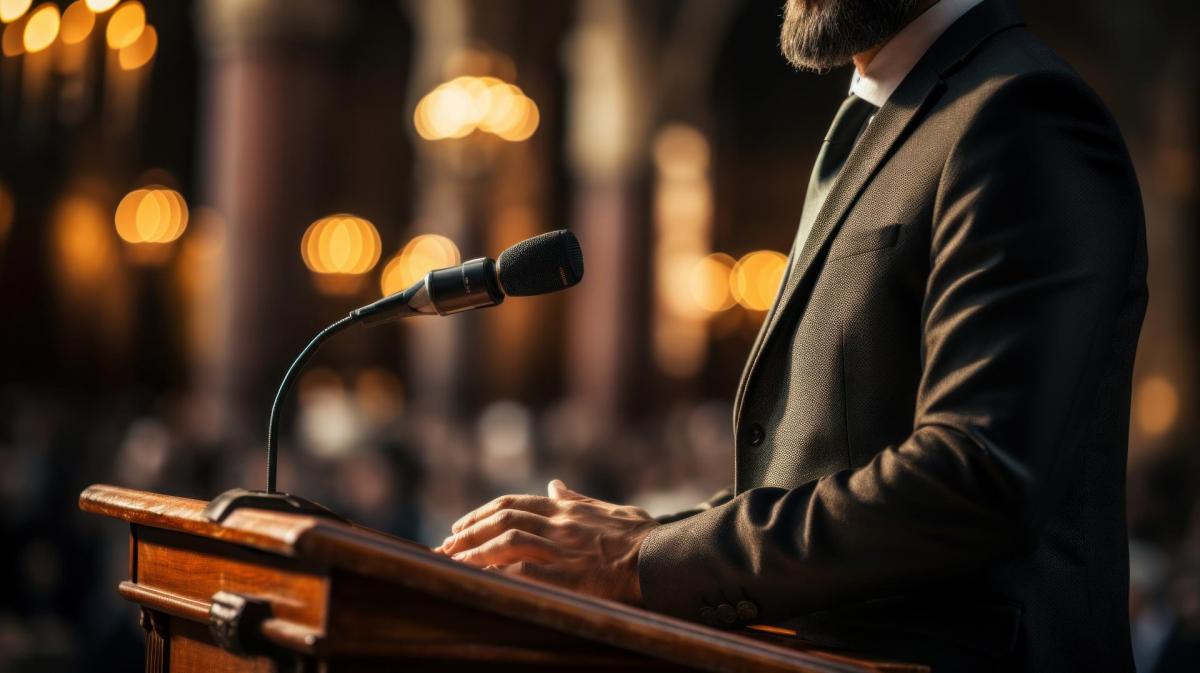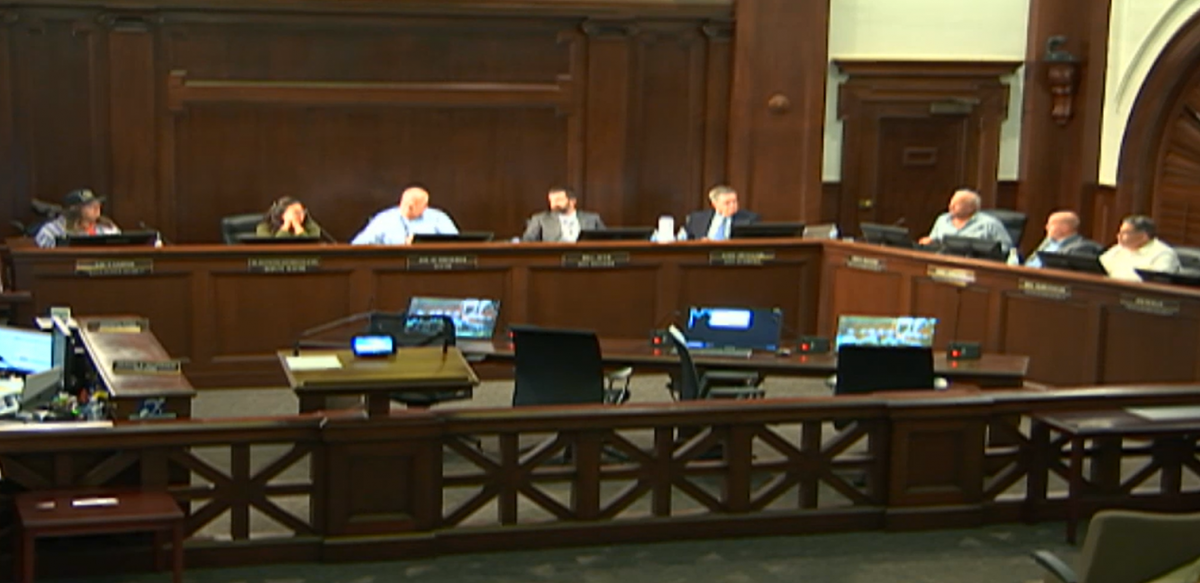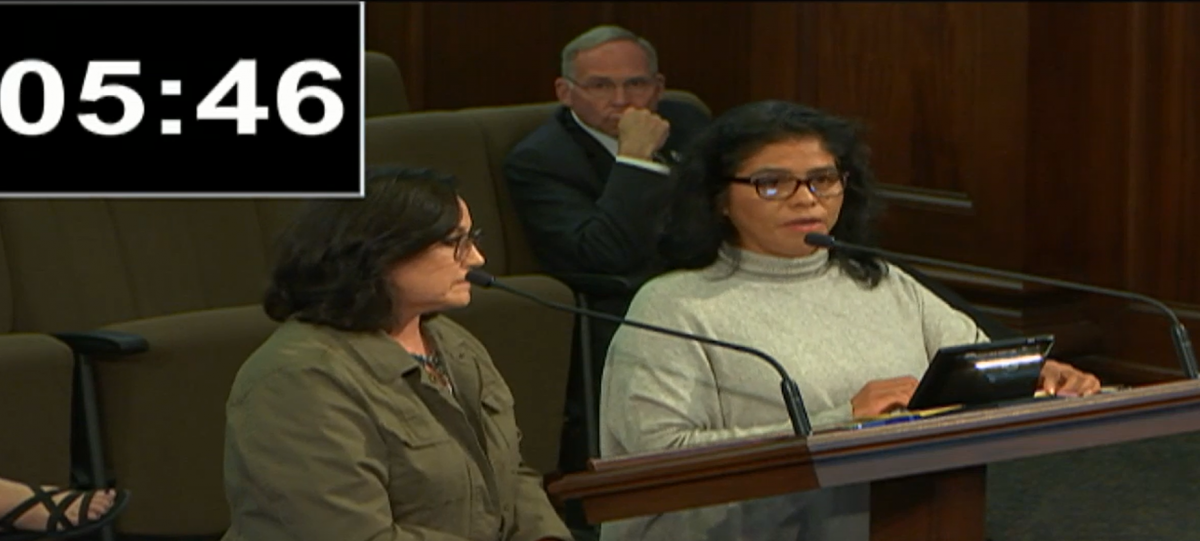Opinion: We cannot let hate campaigns upend remote public meetings
Liz Campos is a council member for the city of Ventura. She can be reached at lcampos@cityofventura.ca.gov.
Cities throughout California, including Ventura, are dealing with an uptick in hate speech during remote public meetings. But just knowing that vile, hateful comments can happen does not fully ready you for a well-organized hate campaign.
The first time I heard about these types of coordinated attacks was at the League of California Cities Annual Conference in mid-September. Ventura had not yet experienced the anti-Semitic attacks that have grabbed media attention. While that knowledge helped us to prepare, my shock was palpable when our city became a target on Yom Kippur.
During a Sept. 25 council meeting, several hateful speakers — having missed the initial open comment period — began commenting during an agendized item. City Clerk Michael MacDonald had already notified City Attorney Andy Heglund that the perpetrators were posting horrific comments in the chat, including swastikas and other types of hate speech. Ventura residents were somewhat protected as only the host/city clerk can see online comments.
As soon as a hateful word escaped the commentator’s mouth, MacDonald muted their microphone and Heglund stated: “Under the Brown Act, speakers must limit their comments to items within the subject matter of the city council. Your comments are not and are disrupting the meeting. If you do not keep your comments limited to items within the subject matter of the council, your opportunity to speak will be ended.”
The commentator was unmuted and allowed to speak. They continued to use hateful speech and were then shut down completely. This happened five more times from five different speakers. Despite this, we are not deterred. In Ventura, many residents have used online comments to tell the city council what works and doesn’t work for them.
City officials disagree on what the best course of action is when faced with these types of comments. I believe that shutting down remote public comments violates peoples’ right to free speech and the oath of office I took to protect and defend our Constitution. Our Constitution gives us the right to redress grievances: Where better to do that than in the presence of local government?
Like many of you, I also wondered how the courts would look at the decision between the right of the speakers to spew such hate and the right of citizens to feel safe, comfortable, and free from it. It hurts public officials and the right of citizens to participate when we lock out the voice of an individual. Many residents must work nights or more than one full-time job to afford to live in California and have limited opportunities to speak with their elected officials.
As a woman confined to a wheelchair, I have also been the focus of hateful and vile behavior. I understand the pain such hate perpetrates on individuals and communities. However, community dialogue is a necessary step to getting us all to solutions to contentious problems.
For instance, in 2020, the Ventura city council voted 6-0 to remove statues of Father Junipero Serra. In other jurisdictions, these statues were toppled, broken down with ropes and chains, and splashed with red paint. This did not happen in Ventura. Instead, church leaders and Chumash elders met together and started a dialogue about what the statues represented. After lengthy and at times contentious public hearings, the city council agreed to remove the statues from city property and return them to Mission San Buenaventura.
Because we allowed people of all opinions — whether angry or benign — to speak and listened to them, there was no violence at the statues’ removal. Instead, community leaders opened and fostered a dialogue of understanding between differing voices.
We must avoid using hate speech or protests to inadvertently curtail freedom of speech and assembly. Such actions can have a reverse effect and incite even worse behavior. If people feel gagged by their local governments, the crescendo of hate will grow louder.
Hate festers in darkness. We as city leaders have a duty to call it out and make clear that hate has no place in our community. If we can shut down hateful speech while continuing to allow people — even those we may not agree with — to speak to our city councils by whatever means works best for them, we can win the battle against hate.
Editor’s note: Cities throughout the state are facing a rise in hate speech in public forums, including at remote public meetings. Responses to these vile acts have varied, with some cities choosing to limit or shut down remote public comment. The comments in this article are the opinion of the writer and are not legal advice.
The League of California Cities is committed to helping city councils navigate this issue. To learn how other cities have responded, consider attending a Dec. 6 webinar and keep an eye out for next year’s update to “Open and Public: A Guide to the Ralph M. Brown Act.” The Institute for Local Government also provides extensive resources and trainings. For specific Brown Act questions, please consult with your city attorney.



